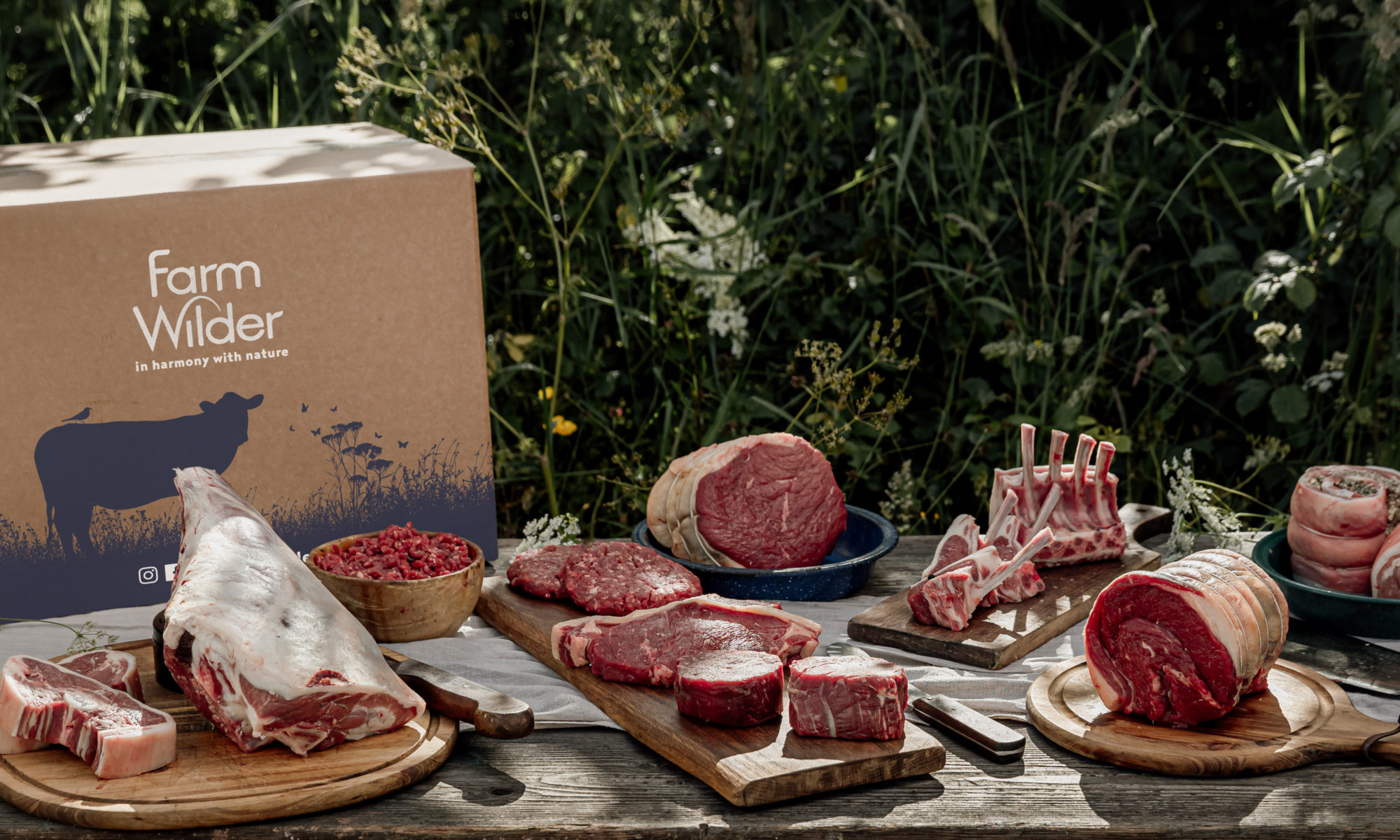Submitted by Lucy Johnson
Regenuary is a growing phenomenon that’s being embraced by those who want to lessen their impact on global warming and adopt more sustainable habits without giving up meat and dairy products.
It’s estimated that the world’s food system is responsible for about one quarter of the planet-warming greenhouse gases, but Regenuary is not about giving up all your favourite foods. It’s about choosing to buy sustainably farmed products that help to turn the tide on the degradation of soil health through regenerative farming practices.
A number of experts have argued that a sustainable food system can and should still include plenty of animals as they can be produced in a way that is beneficial to the environment and this is often better for the climate than some meat and dairy substitutes.
Devon-based Farm Wilder supplies meat boxes direct to your door via its e-commerce site at www.farmwilder.co.uk from farms in Dartmoor, south Devon and east Cornwall that are committed to supporting and restoring wildlife to their farms. The entire range is reared by farmers who use regenerative farming practices, working in harmony with the environment to benefit the animals, farmers, consumers, wildlife and the natural world.
Not only does this positively impact wildlife habitats but it gives people the choice to select delicious food that doesn’t cost the earth. Its slow grown livestock reared with the highest welfare standards on a varied diet of herbs, legumes, grasses and tree browse. This ensures fantastic, healthier meat with a rich and complex flavour.
Farm Wilder labels all its meat, allowing customers to understand where their meat has come from and the wildlife it is helping to save. It is partnered with MC Kelly which supplies meat to the hospitality trade throughout the Westcountry and whose CEO Andy Gray farms at Elston Farm in the heart of Devon. This allows Farm Wilder to use MC Kelly’s master butchers and online sales platform to deliver meat right to your door.
Co-founder Tim Martin says: “Meat is like electricity. There’s bad meat, like electricity from a coal fired power station – this includes much of the meat available in supermarkets and restaurants. What few people realise is that there’s also good meat – the equivalent of renewable electricity.
“We’re talking about meat that can be reared without adding to climate change, meat that actually helps many of Britain’s rarest wild plants and animals to survive. In the past it’s been hard to know which you’re buying, which is where Farm Wilder comes in. We’re a Devon based social enterprise, and we source and label meat from farms across the South West that have exceptional wildlife and we work with them to farm more sustainably.”
Family run Cornish business Trewithen Dairy has created the ‘Trew Farming’ standard, a code of its shared practices and beliefs that set a standard to ensure a commitment to grazing, high levels of animal health and welfare, regular carbon emission monitors and sharing of best practices among the supply pool. It also works closely with two farms pioneering regenerative farming techniques to sequester carbon into the soil and increase biodiversity, a carbon neutral journey it calls its Earth Milk Project.
Managing director Francis Clarke says: “We have always chosen to work with farmers who are passionate about the milk they produce and the way they produce it. The cows’ welfare has always been at the heart of that and now more than ever the interaction with the land and our environment is of equal importance.
“Regenerative farming practices, such as reduced ploughing, diverse herbal lays and rotational grazing can restore soil microbiome, sequester carbon and nurture biodiversity across the farm.
“Working with two Trewithen farmers, we established our Earth Milk Project to accelerate the adoption of regenerative farming practices, evidence the effects and share the learnings.
“We have farmers who are inquisitive about the potential and of a mindset to embrace the change. These are the dairy farmers who are looking at the wider view around the holistic management of their farms and who are interested in how this could lock carbon into the soil.
“It is the beginning of a journey for us and we must balance the mindset and the application of the farming techniques alongside a really rigorous measurement of how it all works and the results it can provide – so we can then talk to our customers with total transparency about what’s being done on the farm and what impact it ultimately has on carbon and biodiversity over a long time.
“We are talking about our journey to carbon-zero – we are not going to go out and make any big claims at the outset – it is our actions rather than our words that will sound loudest. We would love to see regenerative farming being much more widespread – more integrated into the other great work which farmers are doing around reducing emissions. It is this very holistic approach which is required.”
Exmoor-based Graham Harvey, who for more than 30 years has been recognised as a leading writer in the world of regenerative farming and who was agricultural story editor for the BBC’s Archers for two decades, says: “Choosing regeneratively farmed products wherever possible is the best resolution that we can make in 2022 and it is not just limited to animal products. It is the best way I know to bring nature back to the countryside and help to fix the climate, while at the same time getting the benefit of the most nutritious foods around.”
Disclaimer: This article is not owned by FoodPress. Any views or opinions that are expressed are by that of the feature writer.

